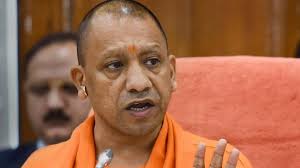World
Sharif chairs high-level meet ahead of Afghanistan visit

Islamabad: Prior to an important Afghanistan visit, Pakistan Prime Minster Nawaz Sharif chaired a high-level meeting here on Monday to discuss the dimensions related to Pakistan-Afghanistan relations.
Sharif, accompanied by his army chief Gen. Raheel Sharif, will be going on a two-day visit to Afghanistan on Tuesday following an invitation from President Ashraf Ghani.
“This will be Sharif’s second visit to Afghanistan and the first after the installation of the National Unity Government in Kabul. Earlier, the prime minister visited Afghanistan on November 30, 2013,” as per reported citing newly-appointed foreign office spokesperson Qazi Khaliullah.
Pakistan’s Army chief Raheel Sharif and its spy master Lt Gen Zaheer-ul-Islam have visited Kabul recently carrying what were described as messages of support and cooperation. The Pakistan Army offered to help train Afghan soldiers and provide equipment for an entire infantry brigade.
It is believed that if the two neighbours were to bury the hatchet, the chances of increased stability in the region would increase dramatically.
It is thought that Pakistan — if it wished — could push the Taliban towards a peace process that the international community has struggled towards for years.
Those attending Monday’s meeting reiterated the need to consolidate and further improve bilateral relations between the two neighbouring countries.
The meeting was attended by Gen. Raheel Sharif, along with other top federal ministers of the country.
World
Lockdowns in China Force Urban Communities to Defy Censorship and Vent Frustration Online

Shanghai’s rich middle class is leading a wave of online dissent over the strict and prolonged lockdowns imposed in various parts of the country. Chinese internet censorship is struggling as patience is wearing thin in many urban centers, coming up with creative forms of online protests.
Social Media Posts Revealing Lockdown Tension in Shanghai
Drawn-out lockdowns are nothing new in China as authorities insist with the nation’s zero-Covid policy since the start of the pandemic. Currently over This time around, however, metropolitan areas like Shanghai are increasingly difficult to keep quiet, given that its more than 25 million residents have seen weeks of total isolation along with food shortages and many other service interruptions.
Dozens of towns and reportedly over 300 million Chinese citizens have been affected by lockdowns of different severity. As expected, urban netizens have been most outspoken over their difficulties by finding creative ways to get around state censorship and bans placed on topics, news comments and spontaneous campaigns.
Shanghai residents have been using mobile proxies and hijacking seemingly unrelated hashtags to talk about healthcare issues, delivery failures and the overall severity of their situation. The “positive energy” that the Chinese government wants to transmit during the recent prolonged series of lockdowns does not come naturally to those counting food supplies and online censors are working hard to filter words, trending topics and undesired social media sharing.
WeChat groups and message threads are under constant monitoring. Posts questioning the zero-Covid approach have been quickly deleted, including by leading Chinese health experts like Dr. Zhong Nanshan. Video footage is soon censored and protests and investigations are quickly made to disappear.
Where this has not worked, officials have exposed banners with warnings and outright threats like “watch your own mouth or face punishment”, while drones have been patrolling the city skies. Yet, if anything, this has led to further tensions and unspoken confrontation with Shanghai’s educated and affluent middle class.
Creative Online Solutions Harnessing Civic Energy
Announcements by Chinese social media that they would be publishing the IP addresses of users who “spread rumors” have not helped either. Tech industry research has shown that much of Asia’s tech-savvy population has a habit of using mobile proxies and other privacy tools, quickly finding workarounds to browse the internet freely and talk to the world about the hottest topics.
The sheer volume of forbidden posts is already a challenge for the very censorship system, experts explain. Unable to track all trending hashtags, state workers overlook topics that speak about the US, Ukraine or other popular news. Linking human rights elsewhere to their situation, Chinese online dissidents establish their informal channels and “hijack” the conversation to share personal or publicly relevant information about the Covid suppression in their town.
Sarcastic and satirical posts still dominate. Others hope to evade the censors by replacing words from famous poems or the national anthem. One thing is certain – social media, when harnessed with the right creativity, has proven its ability to mount pressure on the government in even some of the most strictly controlled tech environments like China.























